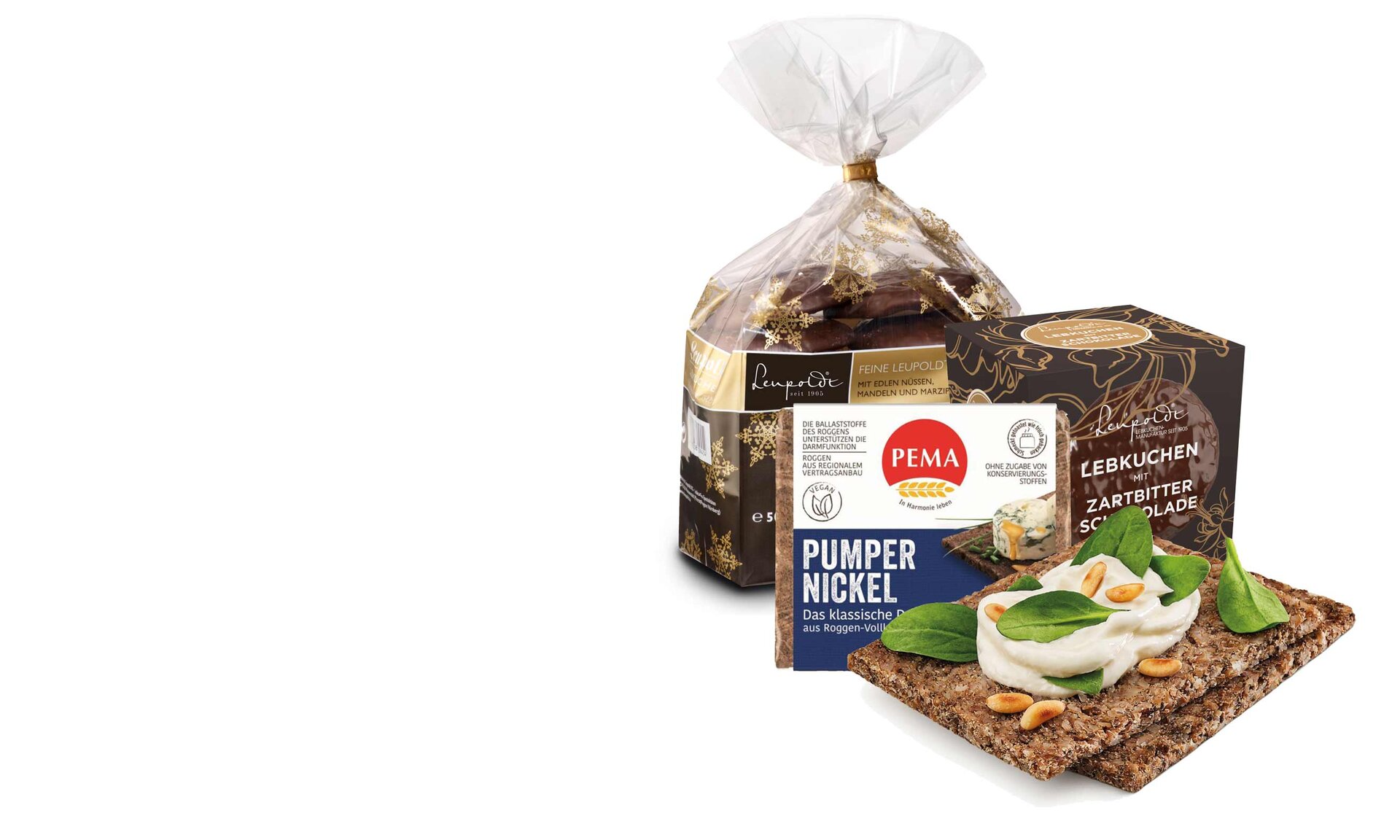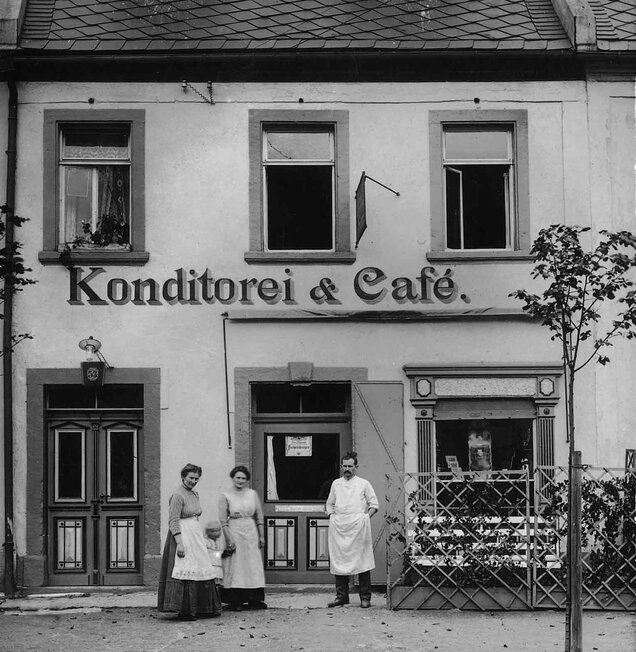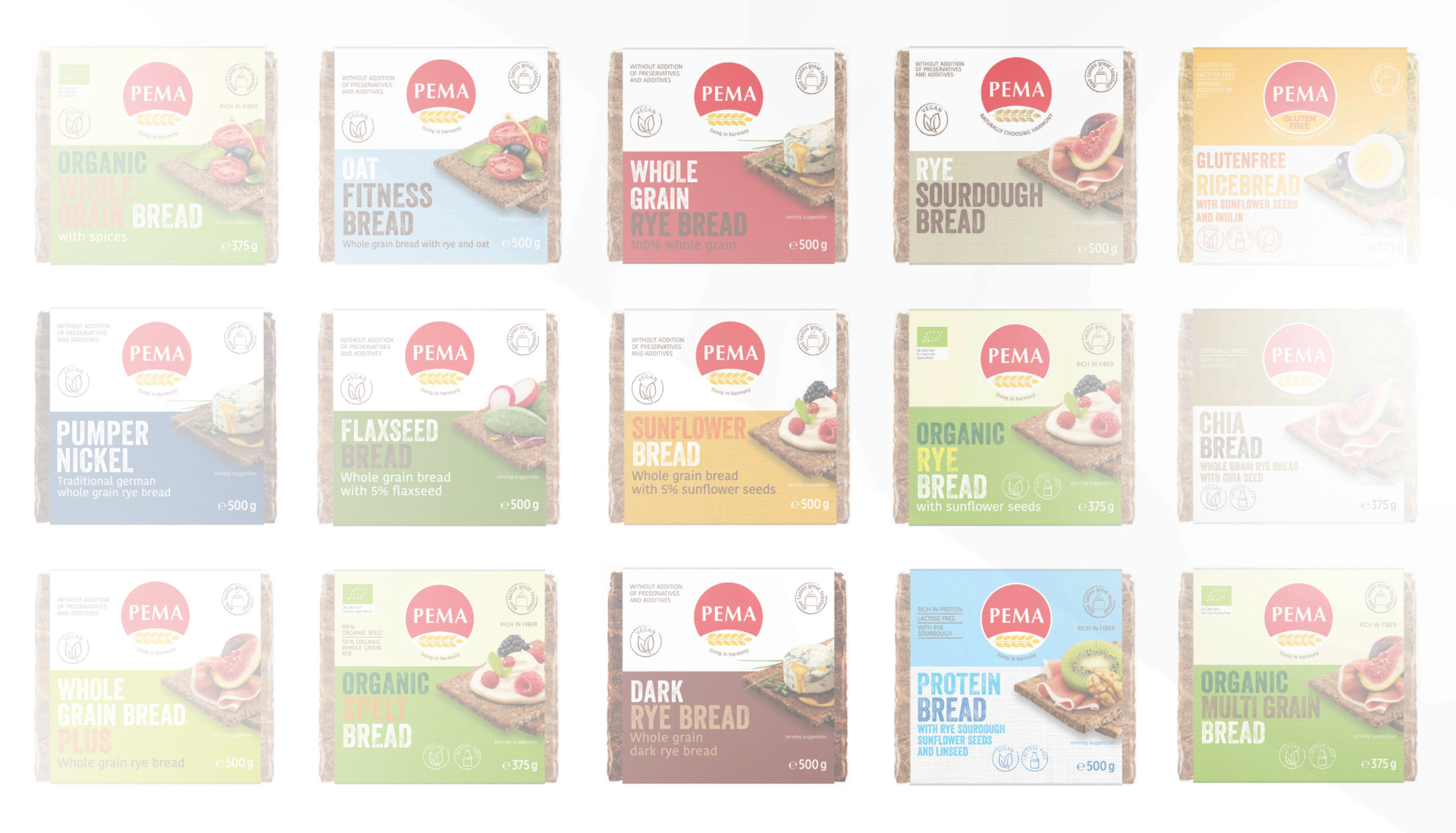
Company history
From gingerbread
to ryebread
A company’s history is, in reality, its biography. Often chance and circumstance have a role to play in that history:
in PEMA’s case, that we bake wholegrain rye bread can be traced back to a translation mistake.
The confectioner Heinrich Leupoldt heard about the sale of equipment from a gingerbread factory located not far from Weissenstadt, in the town of Münchberg. He was puzzled as to why he had never heard of this factory but went to look at the equipment for sale. He was more surprised that he could not find any gingerbread there at all but rather a very dark bread, which was in fact Pumpernickel or Rye bread. It was because of this sale that PEMA began making Pumpernickel and wholegrain rye breads.
PEMA means Lotus Flower in Tibetan: the lotus flower is the symbol of purity, making it the perfect name for our additive-free breads.


Development
and innovation
In 1954 Heinrich Leupoldt developed a completely new pasteurisation and packaging system, allowing the shelf life of our breads to be significantly increased without the need for additives or preservatives. We still use these innovative techniques to this day, enabling us to distribute our breads through the wholesale system rather than delivering them to individual retailers.
Franz H. Leupoldt joined the family business in 1960 and little by little began automating the entire production process. In 1992 his wife, Dr. Laura Krainz-Leupoldt began modernising the company, focusing on new target groups and building an internationalisation strategy.
In 2020 Franz H. Leupoldt and Dr. Laura Krainz-Leupoldt began re-structuring the company in response to new and changing markets by installing a cross-generational management team, ensuring that society’s newly found health-awareness and appreciation of regional products corresponds to PEMA’s traditional corporate identity of ‘Living in Harmony’.
